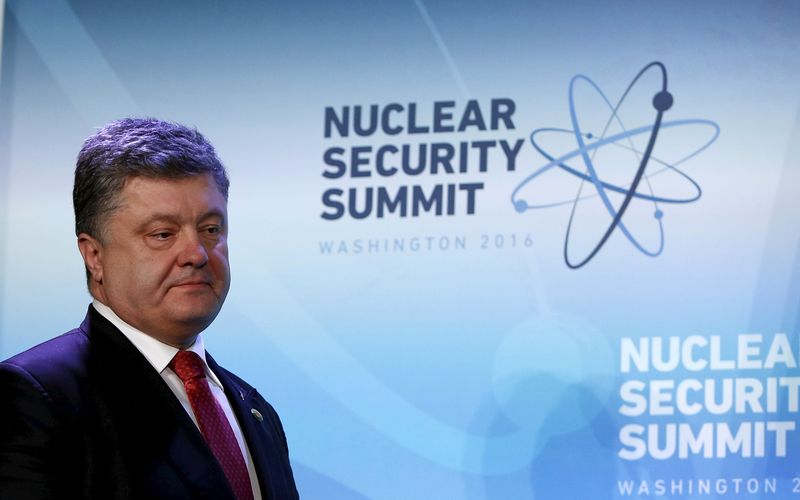WASHINGTON (Reuters) - Ukrainian President Petro Poroshenko on Friday bemoaned the timing of an April 6 referendum in the Netherlands on a treaty on closer ties between the European Union and Ukraine saying it comes as Europe is debating its own future.
"The real purpose for the internal Dutch discussion is about the future of the European Union and internal political clashes," Poroshenko told a news conference at the end of a nuclear security summit in Washington.
"I think this is very dangerous for a country ... to become the victim of this discussion. This is not a timely referendum."
The referendum is not binding, but most Dutch parties have said they would respect a rejection by voters, which could plunge the European Union into crisis when tensions with Russia run higher than at any time since the Cold War.
Still, Poroshenko said Ukraine represented a huge trading market for Dutch and other European producers and he was confident the Dutch would support the EU-Ukraine Association Agreement in the end.
Poroshenko met with Dutch Prime Minister Mark Rutte on the sidelines of the nuclear summit in Washington where the issues was discussed.
At the State Department, spokeswoman Elizabeth Trudeau urged Dutch voters to support the association agreement, which would help spur reforms in Ukraine.
"We believe the EU-Ukraine Association Agreement is critical to ensuring that Ukraine's leaders continue to make the needed and important reforms that will contribute to a more peaceful, democratic, prosperous and stable continent," she told a briefing.
"It will provide new economic opportunities for the Netherlands, for Ukraine and for Europe as a whole."
European Commission chief Jean-Claude Juncker has warned that a rejection of the treaty by Dutch voters could lead to a "continental crisis."
Anti-European campaigners have argued that an association agreement with Ukraine would lead eventually to full membership for Kiev.
Maintaining unity is crucial for Europe's efforts to put pressure on Moscow to help end the conflict between Ukrainian government forces and Russian-backed separatists in eastern Ukraine that has killed more than 9,000 people since April 2014.
The European Union, along with the United States, imposed economic sanctions on Russia in July 2014, targeting its energy, banking and defence sectors.
Sanctions expire in July and can be extended. But countries with a closer relationship with Russia including Cyprus, Italy and Hungary could argue that if Ukraine is not abiding by the Minsk peace deal, the process no longer holds.
